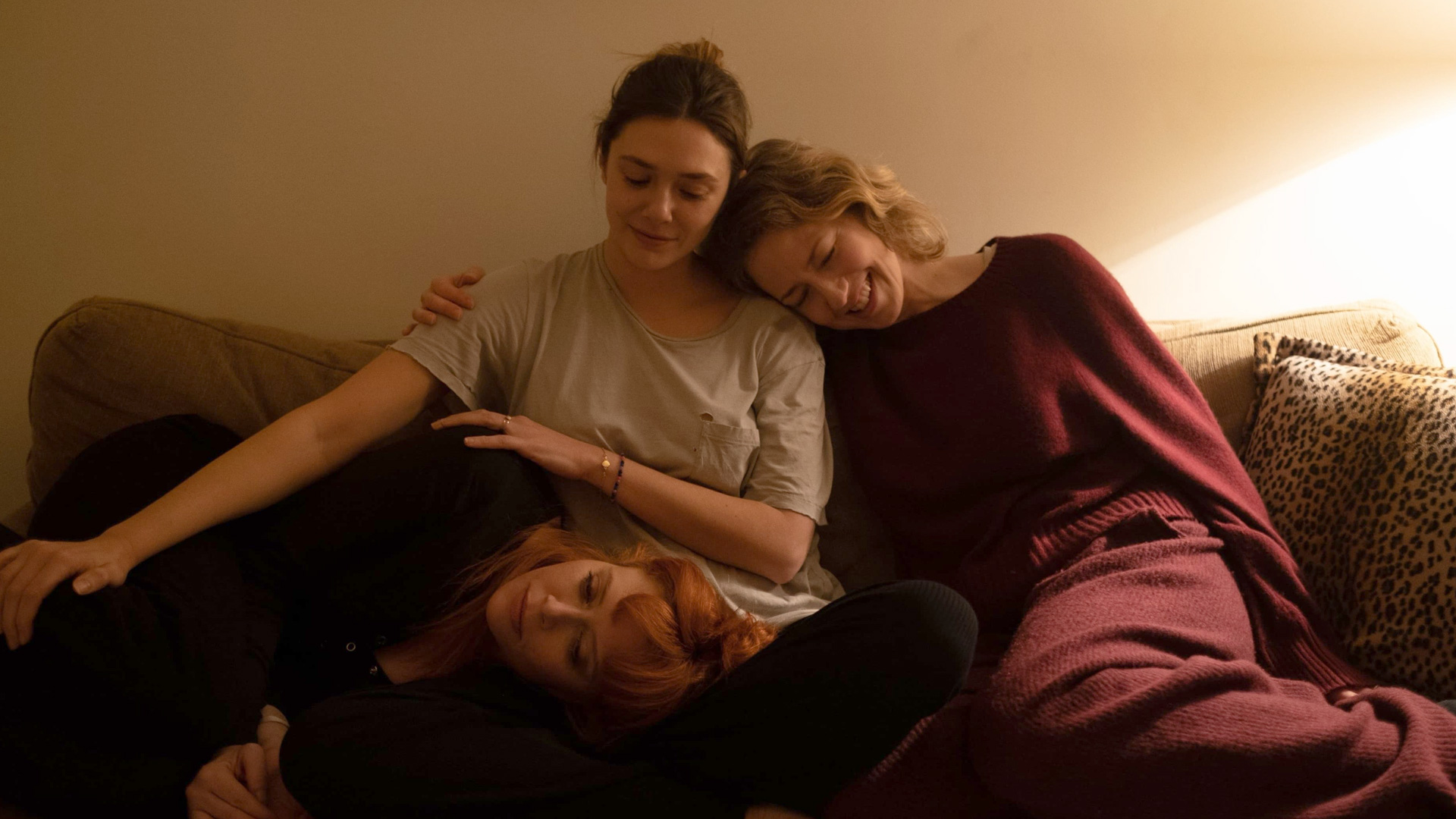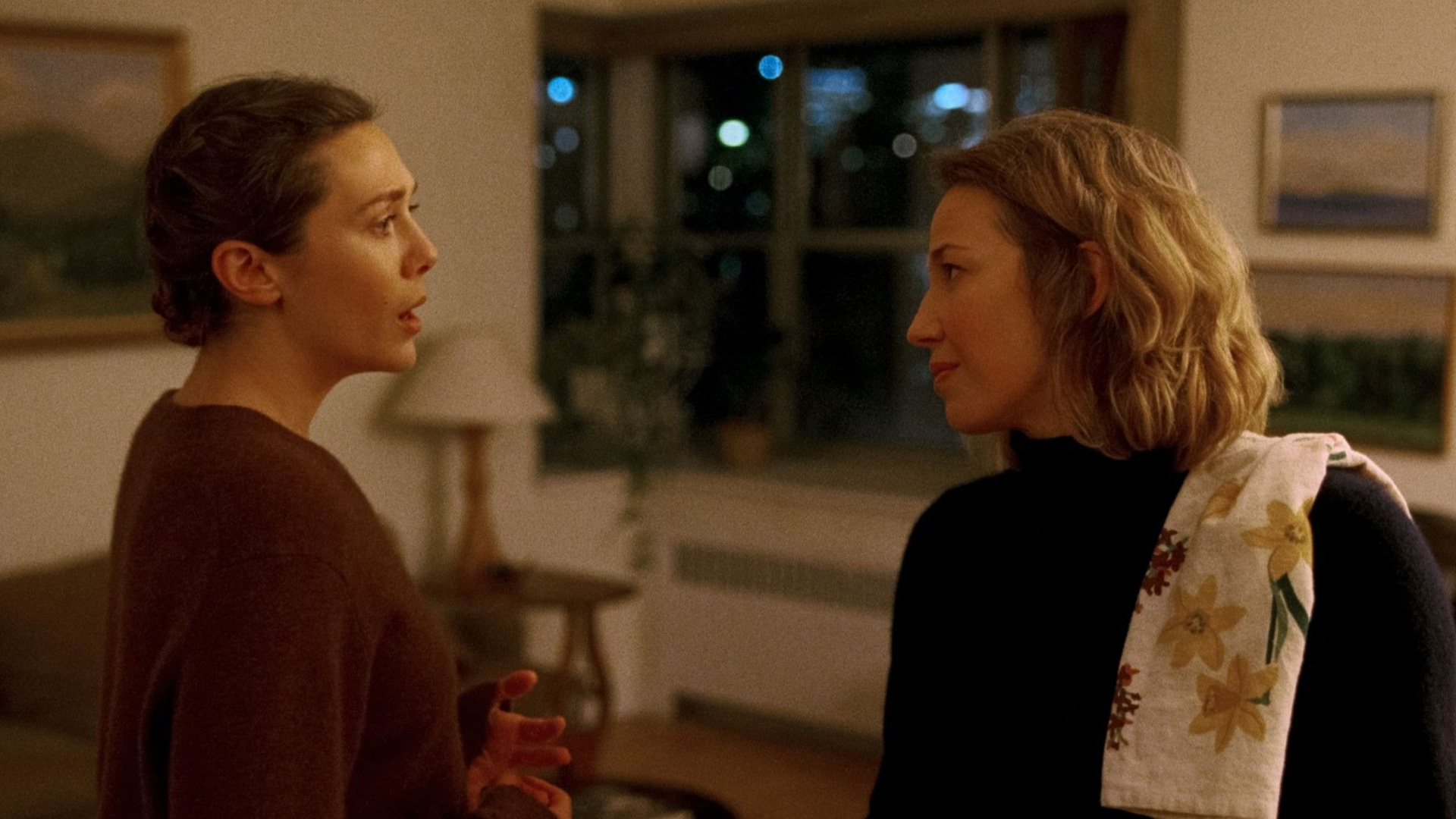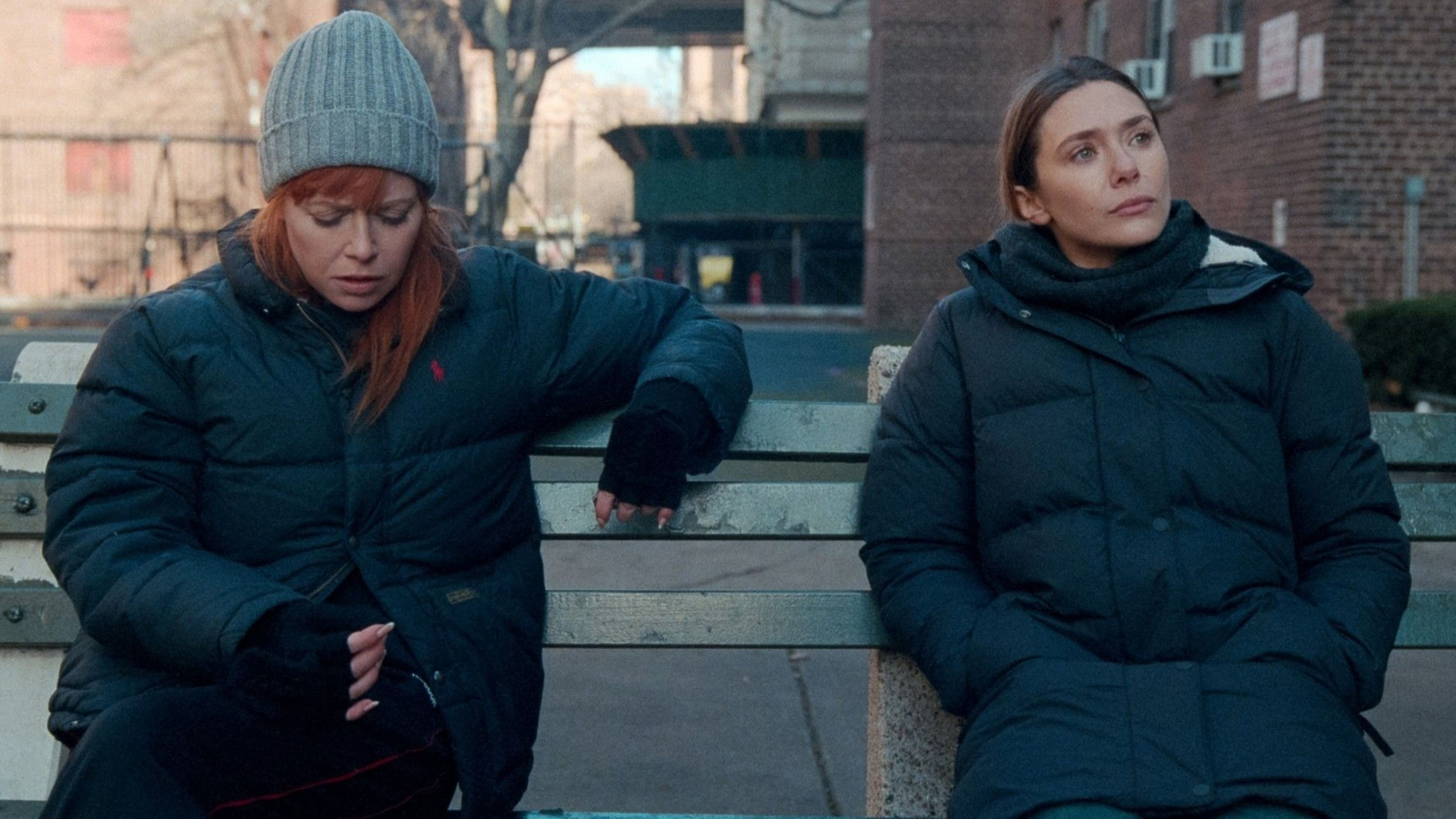His Three Daughters understands anticipatory grief
Anyone who’s experienced anticipatory grief is bound to feel both confronted and soothed by this soft, surgical, sensational reunion drama.

When their father’s health worsens, three estranged sisters come together to try to plan for the inevitable in His Three Daughters. Powered by three dynamic performances, Liam Maguren is in praise of this soft, surgical, sensational reunion drama.
Anyone who’s experienced anticipatory grief, primarily the feeling of losing a terminally ill loved one who hasn’t passed just yet, is bound to feel both confronted and soothed by writer-director Azazel Jacobs’ soft, surgical, sensational reunion drama His Three Daughters. Set almost entirely inside a New York apartment, the film’s powered by three dynamic performances from Carrie Coon, Natasha Lyonne, and Elizabeth Olsen as the titular daughters, reunited for the first time in years to care for their father in the last days of his life.
The film opens with Katie (Coon) laying down the ground rules of how the days should and will operate, a monologue delivered with the dry sternness of a CEO issuing layoffs. We then see Rachel (Lyonne) staring vacantly as she’s literally being talked down to. It’s not quite a sign of disinterest; it reads more like disappointment that, despite all the passing years and the current situation, Katie’s still on her train of condescending bullshit. Then enters Christina (Olsen), trying not let her bright eyes get too soggy from the emotionally overwhelming situation.
It’s a simple opener that says so much about these women—who dominates, who rebels, who keeps the peace—while also leaving the audience wondering how exactly their relationship became so fractured. And, potentially, how it will become even more fractured. The incoming death of their patriarch can either bind or break the sisters and, as anyone who’s been through similar circumstances will know, that tension hangs heavy throughout.
Which is remarkable for a film that’s otherwise gentle, quiet, and often humorous in its approach. The score is sparse, as is the frame, visually uncluttered like most of the father’s apartment. The wise wardrobe department do a stellar job filling out the space with adorned colours, the characters dressed to reflect their shifting moods and alliances. There’s a beauty in this film’s bareness. Vulnerability feels inevitable. Inviting, even.
But that bareness is also tied to one of Jacobs’ most sombre and poignant ideas: that true grief is expressed through absence. As such, the camera keeps the father and his dedicated room out of view, powerfully evoking his destiny with The Other Side.

What isn’t absent is the baggage these sisters have been lugging around for years, laying it at each other’s feet in the form of passive-aggression. Initially, Rachel’s made out to be the dropkick of the trio, a label made vivid by her rampant (legal) pot smoking and frequent sports betting habit. It should surprise no-one that Lyonne gobbles up that gruff side of the character, but she goes much further by subtly showing her sensitivities to how she’s viewed—and how her sisters might never think more of her. There’s heartbreak hiding behind her glazed eyes.
It doesn’t take long to think Katie’s the real issue, openly and persistently criticising Rachel’s life choices even though the stoner of the group has been living with, and caring for, their father while the other two got on with their separate lives. Coon’s absorbingly acidic in the role, to the point where it can feel like she’s pouring it on a bit thick, only for a third act reveal to bring some much-needed light on the character’s sizeable sense of entitlement.
Meanwhile, Christina’s on the emotional equivalent of a tightwire walk while juggling the chainsaws that are her sisters. It would be fair to say she’s the most sensitive of the trio, her freshness to motherhood amplifying her delicate nature, but Olson’s finely tuned performance assures us that these traits shouldn’t be read as weaknesses. If anything, Christina’s openness is her strength here. While her clammed-up siblings boil themselves on the inside, she releases by being truthful and managing her mentality through meditation and yoga (two things that are, perhaps, too often treated as jokes in cinema and TV).

Jovan Adepo also makes an appearance as Rachel’s “friend” Benjy. While it’s a relatively small role, the character’s gifted with one of the most memorable scenes in the film, the kind of moment where someone says exactly what’s on the audience’s mind. Adepo’s delivery is subdued but powerful, exiting the film in a bitterly sweet fashion.
As Hospice worker Angel, Rudy Galvan has the important job of being the calm voice and smiling face in a room full of bubbling tension. He’s all admin, explaining the Hospice process and rough estimates on their dad’s declining health. He’s perfectly boring as a man who knows the value of doing his business and staying out of theirs, bringing a weird sense of peace with his presence. Whenever he’s not around, it feels like a fuse reignites.
Angel’s ultimately another brick used to build on this idea of grief expressed through absence. Near the end, the film makes a surprising move that threatens to collapse what it’s constructed, only to double back in a way that solidifies every good thing that came before.
There is no fantasy or flashiness to the portrayal of anticipatory grief in His Three Daughters. That’s what gives the film such wisdom and power, alongside the strong script and stellar performances. Ending in a way that mimics the beginning, a simple piece of gallows humour beautifully leaves us with an everlasting idea of who these women were and—more importantly—what they’ve gained. An absence, filled.






















